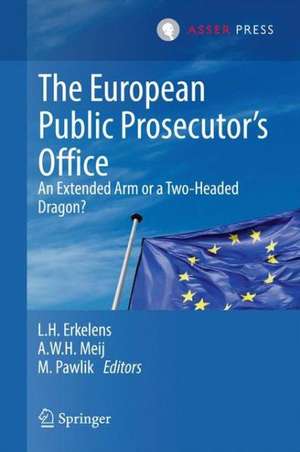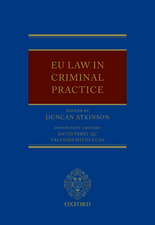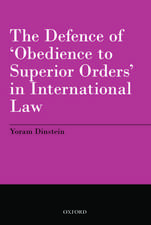The European Public Prosecutor’s Office: An extended arm or a Two-Headed dragon?
Editat de L. H. Erkelens, A.W.H. Meij, M. Pawliken Limba Engleză Hardback – 29 sep 2014
Preț: 1004.99 lei
Preț vechi: 1225.59 lei
-18% Nou
Puncte Express: 1507
Preț estimativ în valută:
192.37€ • 209.02$ • 161.69£
192.37€ • 209.02$ • 161.69£
Carte tipărită la comandă
Livrare economică 22 aprilie-06 mai
Preluare comenzi: 021 569.72.76
Specificații
ISBN-13: 9789462650343
ISBN-10: 9462650349
Pagini: 285
Ilustrații: X, 285 p. 1 illus. in color.
Dimensiuni: 155 x 235 x 22 mm
Greutate: 0.59 kg
Ediția:2015
Editura: T.M.C. Asser Press
Colecția T.M.C. Asser Press
Locul publicării:The Hague, Germany
ISBN-10: 9462650349
Pagini: 285
Ilustrații: X, 285 p. 1 illus. in color.
Dimensiuni: 155 x 235 x 22 mm
Greutate: 0.59 kg
Ediția:2015
Editura: T.M.C. Asser Press
Colecția T.M.C. Asser Press
Locul publicării:The Hague, Germany
Public țintă
ResearchCuprins
Introduction.- Presentation of the Commission’s proposal on the establishment of the European Public Prosecutor's Office.- The Commission’s legislative proposal: an overview of its main characteristics.- Is the Commission proposal for a European Public Prosecutor's Office based on a harmonious interpretation of Articles 85 and 86 TFEU?.- Constitutional issues of multilevel prosecution by the European Public Prosecutor's Office from a Union perspective.- The European Public Prosecutor’s Office and Eurojust: ‘Love match or arranged marriage’?.- Some explorations into the EPPO’s administrative structure and judicial review.- Search and seizure measures and their review.- The choice of forum by the European Public Prosecutor.- Issues of conferral, subsidiarity and proportionality.- European Public Prosecution’s Office: A far from perfect proposal.- Establishing enhanced cooperation under Article 86 TFEU.- Implications of enhanced cooperation for the EPPO model and its functioning.
Textul de pe ultima copertă
In July 2013 the European Commission launched its legislative proposal to create a European Public Prosecutor’s Office (EPPO). The proposal provoked fierce debates, politically as well as on the academic level. Many national parliaments opposed and submitted formally their grievances to the Commission and negotiations on the proposal between Member States are ongoing. As early as September 2013, the T.M.C. Asser Instituut in The Hague, The Netherlands, held the first international conference on this unprecedented proposal.
This book reflects the main results of that conference. It provides a concise background of and reasoning for the introduction of this new EU body entrusted with far reaching judicial powers disclosing important legal and policy implications. Within its hitherto limited scope, the existing system of judicial cooperation between EU Member States will change fundamentally, directly affecting the functioning of national courts and public prosecution offices. This book helps answering fundamental questions involved. It provides a solid basis for both academics and practitioners to further structure an EPPO, respecting the interests of all parties involved.
At the time of writing and editing this volume, Leendert Erkelens and Arjen Meij were both Visiting Research Fellow at the T.M.C. Asser Instituut in The Hague, The Netherlands. Marta Pawlik was a Research Assistant in the same Institute.
This book reflects the main results of that conference. It provides a concise background of and reasoning for the introduction of this new EU body entrusted with far reaching judicial powers disclosing important legal and policy implications. Within its hitherto limited scope, the existing system of judicial cooperation between EU Member States will change fundamentally, directly affecting the functioning of national courts and public prosecution offices. This book helps answering fundamental questions involved. It provides a solid basis for both academics and practitioners to further structure an EPPO, respecting the interests of all parties involved.
At the time of writing and editing this volume, Leendert Erkelens and Arjen Meij were both Visiting Research Fellow at the T.M.C. Asser Instituut in The Hague, The Netherlands. Marta Pawlik was a Research Assistant in the same Institute.
Caracteristici
The first book on the unprecedented proposal to effectively set up a European Public Prosecutor’s Office, a new EU judicial body Provides in-depth insights in possible structures and functions of the new body, which is useful for both academics and practitioners Shares critical examinations of the legal and practical consequences for the national criminal law systems and for other EU bodies Includes supplementary material: sn.pub/extras









